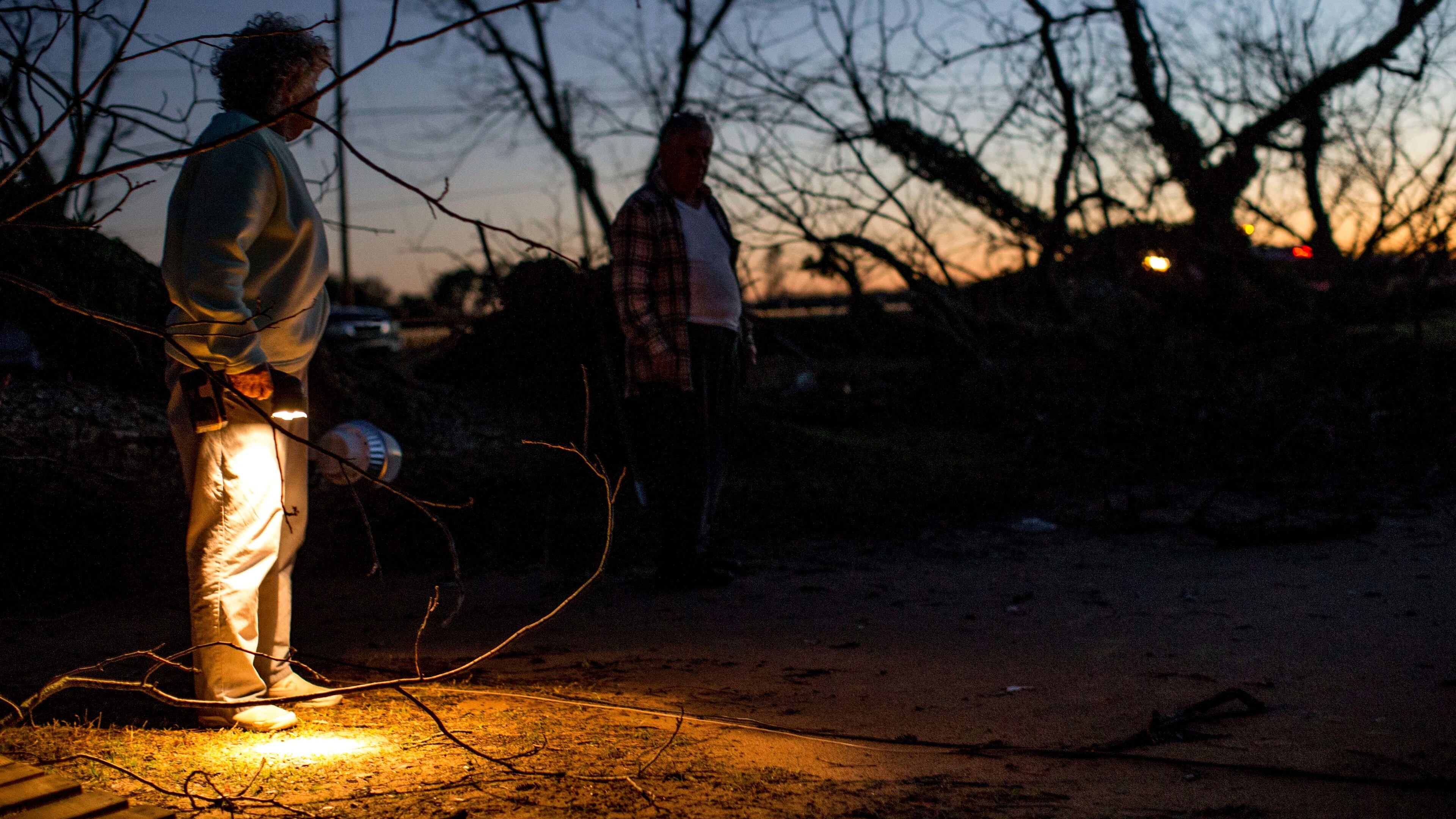‘We need help’: Albany official implores Trump after tornadoes

Dougherty County officials pleaded Monday for help from the federal government after the second severe storm in a matter of weeks devastated the Albany area, this time killing at least four people in the area of a mobile home park.
The death toll from the suspected tornado is expected to rise as search and rescue efforts continue in the coming days, county Chairman Christopher S. Cohilas told reporters in an at times emotional plea.
“We’ve been begging for help from FEMA (since Jan. 2) – the reason the federal government exists,” he said. “This community was crippled. Our families have been hurting, needing help for some time.”
Several wheelchair-bound people were found alive in the park Monday, county coroner Michael Fowler Sr. said. He declined to give an estimate of how many people are unaccounted for or speculate on whether the death toll will rise.
But he said it’s certainly possible as much work is left to do search the area.
No one was killed in the Jan. 2 tornado, but the chairman said the damage is easily in excess of $50 million. Cohilas called on President Donald Trump to help cut the “bureaucratic red tape” and help get some “damn boots on the ground.”
He said the Albany mayor was in Atlanta today in a meeting with Gov. Nathan Deal to discuss getting the area help.
The latest tornado came Sunday afternoon and ravaged the Big Pines Estates mobile home park.
“It looks like God took half the mobile home park and threw it across the road into the woods,” Cohilas said.
County emergency management director Ron Rowe said local resources are simply exhausted – and they have been for weeks.
“There are only a couple areas of our county that have not been affected by the tornadoes,” Rowe said.
Across town from the mobile home park, residents and volunteers were still out cleaning Monday from the Jan. 2 storm.
Blue tarps were strung over numerous roofs in the historic Rawson Circle Garden District. Uprooted trees remained, along with giant mounds of limbs and cut-up trunks. Dumpsters sat in front yards, loaded down.
Three weeks ago, these streets were nearly completely hidden by debris. Emergency workers had to come in on foot to account for all the residents through the night.
Now Floyd Faulk was trying to make a dent in the mess at his 86-year-old mother’s house, his work gloves coated in dark tar from all the limbs.
MORE: Brooks County nightmare: 'Looked like a bomb went off in that house'
MORE: South Georgia storms kill 16
MORE: Search is on for 5 missing people in South Georgia following storms
Asked about the federal response, he said he thought it might finally be on the way, now that things got worse in Albany.
“Fatalities draw attention,” he said.
He had mixed feelings on what role the feds should play in assisting Albany and wishes he and other locals could take care of themselves.
“But,” he said, help “would be nice.”
Over on Lakeview Drive, Cary Stoudenmire raked sticks and leaves from the street in front of her home, where she was without power for 10 days after the first storm.
She said she’s looking for the government feds to do more.
“That’s part of what the federal government’s responsibility is - to aid in times like this,” she said. “We have certainly had devastation to our homes and property. So many of our neighbors had to move out of their homes.”
Now, she knows the need is even greater from the reports out of Big Pines Estates.



